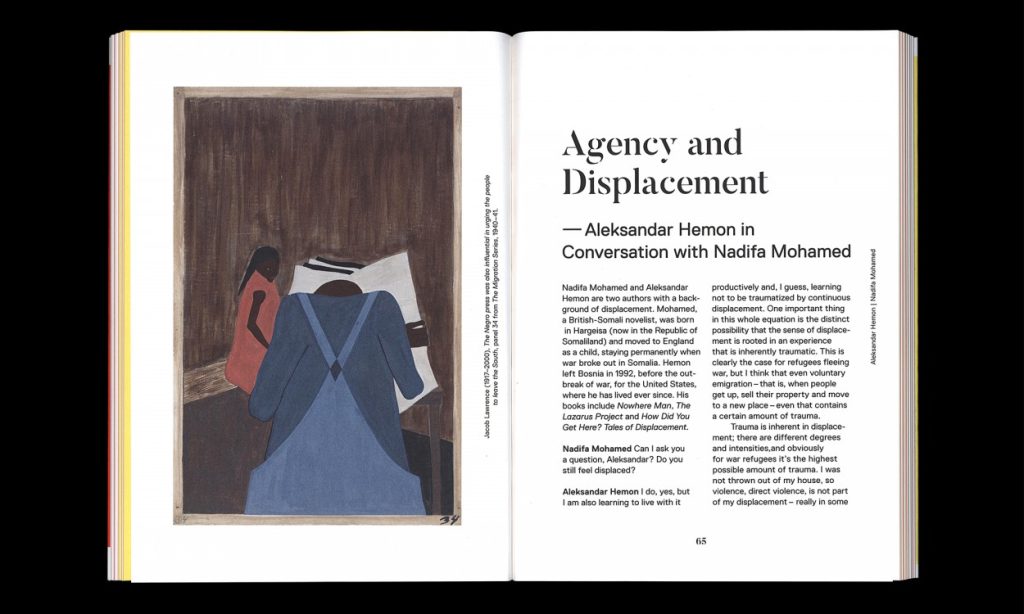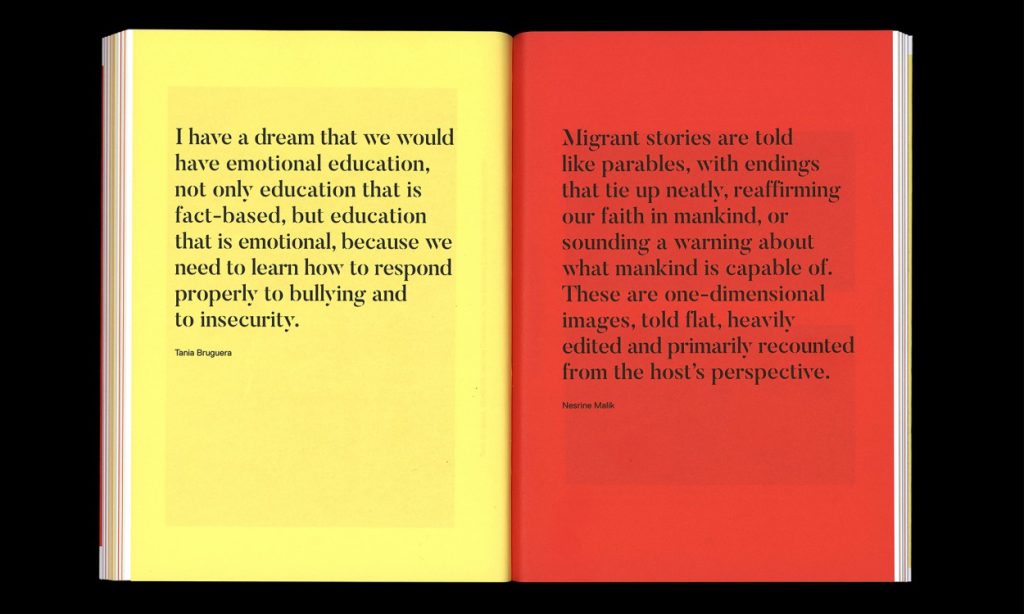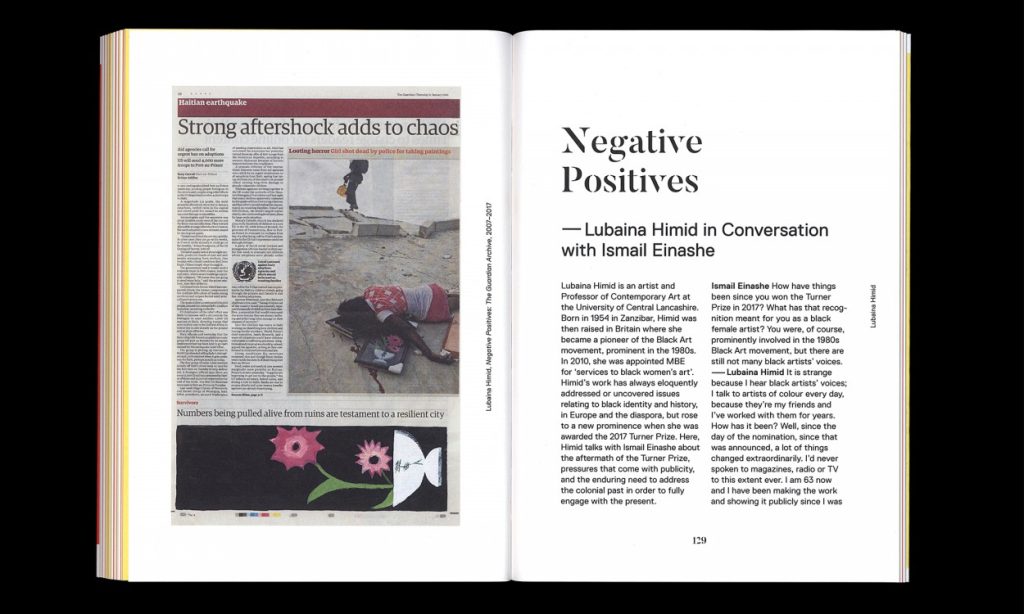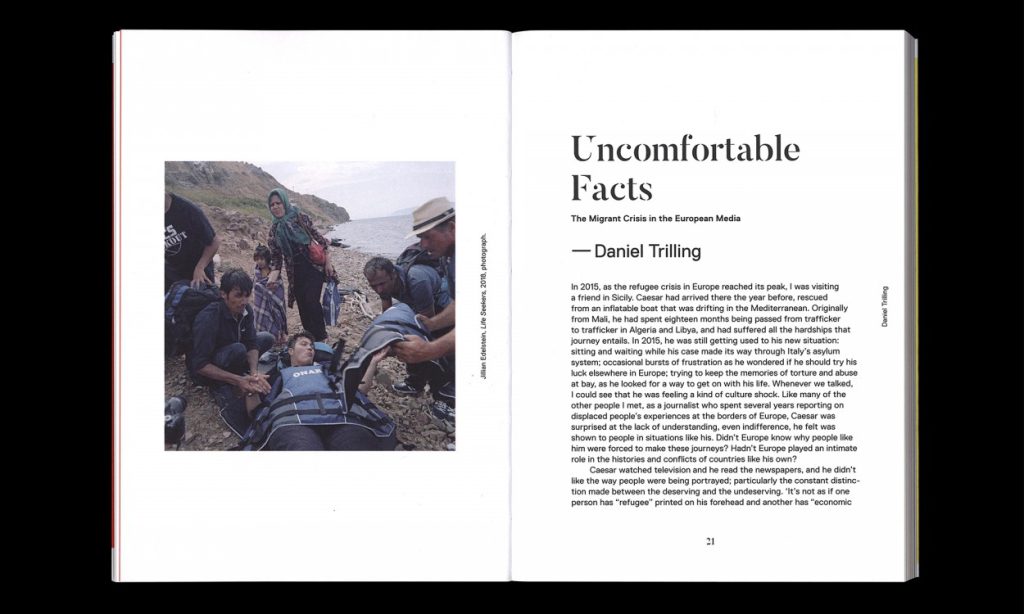Lost in Media: Migrant Perspectives and the Public Sphere
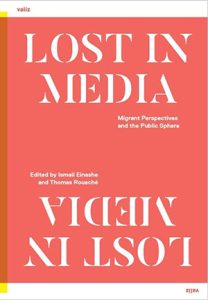
Editor(s): Ismail Einashe & Thomas Roueché
Publisher: Valiz
Year of Publication: 2020
Print Length: 168 pages
Genre: Non-Fiction / Essay, Photojournalism, Migration & Refugee Studies
Area: Europe, Poland, Spain, The Balkans
Topic: Media & Narratives, Representation, Migrants, Foreign/Migrant Workers, Migration, Asylum & Asylum Seekers, Refugees & Forced Migration, Visual, Civil Participation, Public Opinion, Public Disillusion, Dehumanization, Race, Humanism, Social Change; Self-Determination, Autonomy, Agency
How can migrants represent themselves in public debate? Lost in Media argues for new terms of participation.
This volume gathers critical responses to the representations of migrants in the media in Europe through nine essays by prominent writers, artists and journalists. The starting point is the assertion that migrants have entered European countries, but they haven’t entered the public sphere. When they do, it is as characters in other people’s stories as something other. They are spoken about, but rarely asked. Pointed at, but rarely heard. Decided for, but rarely involved. We hardly ever hear from young migrants as legitimate voices. If migrants and refugees are to become fully recognized citizens of Europe, we believe they need to be participants in—rather than subjects of—the public debate.
Lost in Media: Migrant Perspectives and the Public Sphere is conceived from the ‘Displaced in Media’ project and is created in cooperation with the European Cultural Foundation.
Table of Contents
Foreword: We Are Lost in Media — André Wilkens
Introduction: The Power of the Story — Ismail Einashe and Thomas Roueché
Uncomfortable Facts: The Migrant Crisis in the European Media — Daniel Thrilling
A Prophesy Fulfilled: Race and Migration in Spain — Moha Gerehou
Fake News and Fake Facts: Media Literacy and Civic Engagement in the Balkans — Antonija Letinić
Agency and Displacement — Aleksandar Hermon, in Conversation with Nadifa Mohamed
First to Feel Offended, First to Offend: Two Decades of Poland’s Culture Wars — Dawid Krawczyk
A Very Long Fight — Tania Bruguera, in Conversation with Ismail Einashe
Humanizing Stories: Migrants and the Media — Nesrine Malik
Negative Perspectives — Lubaina Himid, in Conversation with Ismail Einashe
The Paper Pain — Ece Temelkuran
Afterword: Displaced in Media 2017-2019 — Menno Weijs
Note on the Images
About the Contributors
Image Credits
Colophon

Ismail Einashe is an award-winning journalist and writer. His work has appeared in The Guardian, BBC News, The Sunday Times, Foreign Policy, The New York Times, Frieze, ArtReview, and The Nation, among many others. He’s especially recognised for his coverage of migration and refugee issues, for which he has won multiple awards. He is the author of “Look Again: Strangers” (2023), a book by Tate Publishing that explores migration through the lens of art. He co-edited the book “Lost in Media: Migrant Perspectives and the Public Sphere,” (2019), which focuses on the representation of migrants in European media. Ismail is part of Lost in Europe, a cross-border journalism project investigating child migrant disappearances in Europe. As an Alicia Patterson Foundation Fellow in 2019, Ismail reported on China’s involvement in Africa, focusing on Kenya, Ethiopia, Tanzania, and Zambia.
Source: https://www.ismaileinashe.com/
More from Ismail Einashe in this library, click here.

Thomas Roueché is a writer, editor and semiotic consultant. As a semiotician, he decodes cultural meaning to speculate on futures and advise business on strategy, working on projects for brands across many sectors, from FMCGs to technology. He has been the editor of TANK magazine, an independent arts and culture magazine, since 2014. He is a dual US/UK citizen and has worked remotely between Istanbul, London and New York. He holds BA History from University of Cambridge and an MA in Turkish Studies from School of Oriental and African Studies (SOAS), University of London.
Source: https://www.thomasroueche.com/about
More from Thomas Roueché in this library, click here.

